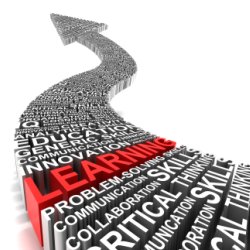In a realm that constantly pummels us with knowledge and choices, mastering the art of smart decision-making has never been less critical. Regardless of whether in our private lives or professional endeavors, the capability to make informed and efficient decisions can profoundly impact our achievement and happiness. Yet, decision fatigue to becoming a determined individual is frequently laden with challenges, including the fear of failing, analysis paralysis, and mental exhaustion from decisions. Grasping how to deal with these hindrances is crucial for individuals looking to improve their decision-making skills.
This article explores the strategies and techniques that can change the way you deal with decisions. From identifying the mindset behind superior choices to learning how to make improved decisions under duress, we will investigate actionable advice and proven frameworks that will lead you to make confident and impactful decisions. If you are aiming to enhance your skills for career advancement or self growth, the learnings presented here will arm you with the skills needed to prosper in a challenging and fast-paced environment. Come along as we reveal the keys to decision-making mastery and lead to success in every aspect of life.
Tested Techniques for Effective Decision-Making
To enhance your decision-making abilities, it's important to adopt successful techniques that promote clarity and confidence. One effective approach is the implementation of decision-making frameworks that guide your thinking process. Frameworks such as SWOT analysis, which evaluates strengths, weaknesses, opportunities, and threats, can provide a systematic way to assess your options. This method not only clarifies your thoughts but also emphasizes critical factors that could be missed.

Another key technique is to accept the value of pause. In moments of confusion, taking a break to reflect can lead to more informed choices. This practice allows you to obtain more data, consider alternatives, and even discuss with trusted advisors, thus lessening impulsive decisions. Pausing encourages reflection and can help prevent the common pitfall of paralysis by analysis, where analysis paralysis hinders your ability to move forward.
Lastly, the ability to understand emotions plays a significant role in good decision-making. By understanding and regulating your own emotions, as well as being aware of the emotions of others, you can make more equitable decisions. This insight enables you to navigate social dynamics and integrate empathy into your choices, ultimately leading to decisions that are not only sound but also mindful of the broader impact on stakeholders.
Tackling Challenges in Making Decisions
Decision-making is often filled with issues that can hinder our capacity to make choices wisely. One of the primary challenges is anxiety of making the incorrect choice. This fear can lead to uncertainty or overthinking, causing individuals to doubt themselves repeatedly. To surmount this, it is essential to recast the perspective on decision-making as an chance for development rather than a danger of failure. Adopting a mental attitude that allows for learning from mistakes can diminish the stress associated with making decisions.
Another frequent challenge is data paralysis, where the vast volume of options and data can paralyze decision-makers. In this fast-paced environment, it is common to feel overwhelmed by the abundant information. To tackle this, establishing a decision-making framework can help simplify the process by defining what criteria are most essential. Limiting the number of options to a manageable few and defining specific criteria for evaluation can greatly enhance understanding, making it simpler to reach a conclusion.
Emotional influences also play a crucial role in making decisions. Strong emotions can cloud judgment, leading to choices driven more by emotion than by rational thought or critical thinking. To manage this challenge, engaging in mindfulness can provide mental clarity and help separate emotional reactions from rational thought. By taking a moment to stop and evaluate the emotional context before making a choice, individuals can enhance their capacity to evaluate choices objectively and decide more efficiently.
Boosting Decision-Making Competencies via Practice Sessions
To develop decision-making abilities, regular exercise is essential for essential. Commence by developing opportunities to everyday judgments. This may vary between what to eat during the midday meal or which way to follow for work. Through taking these decisions deliberately, you builds a habit of evaluating choices, judging pros and cons, and thinking about outcomes. With increasingly more you engage in practice, the more more confident one feels in one's ability to take decisions rapidly along with effectively.
Involving with mock situations can boost decision making competencies. Acting out multiple scenarios, whether in a work setting or social situations, enables you to examine various consequences free from actual results. This method aids to strengthen one's evaluation skills while also motivates you to explore innovatively regarding options. By reflecting about the activities, one might recognize patterns in one's decision making process along with spaces to improve.
Furthermore, requesting constructive criticism from peers and guides might offer important feedback into one's decision making method. Constructive evaluation can point out blind spots and assist you steer clear of recurring old blunders. Consistently talking about decisions as well as their consequences might cultivate a setting of improvement, in which modifying the approach turns out to be a instinctive part of one's progress pathway, resulting in better competencies as time passes.
